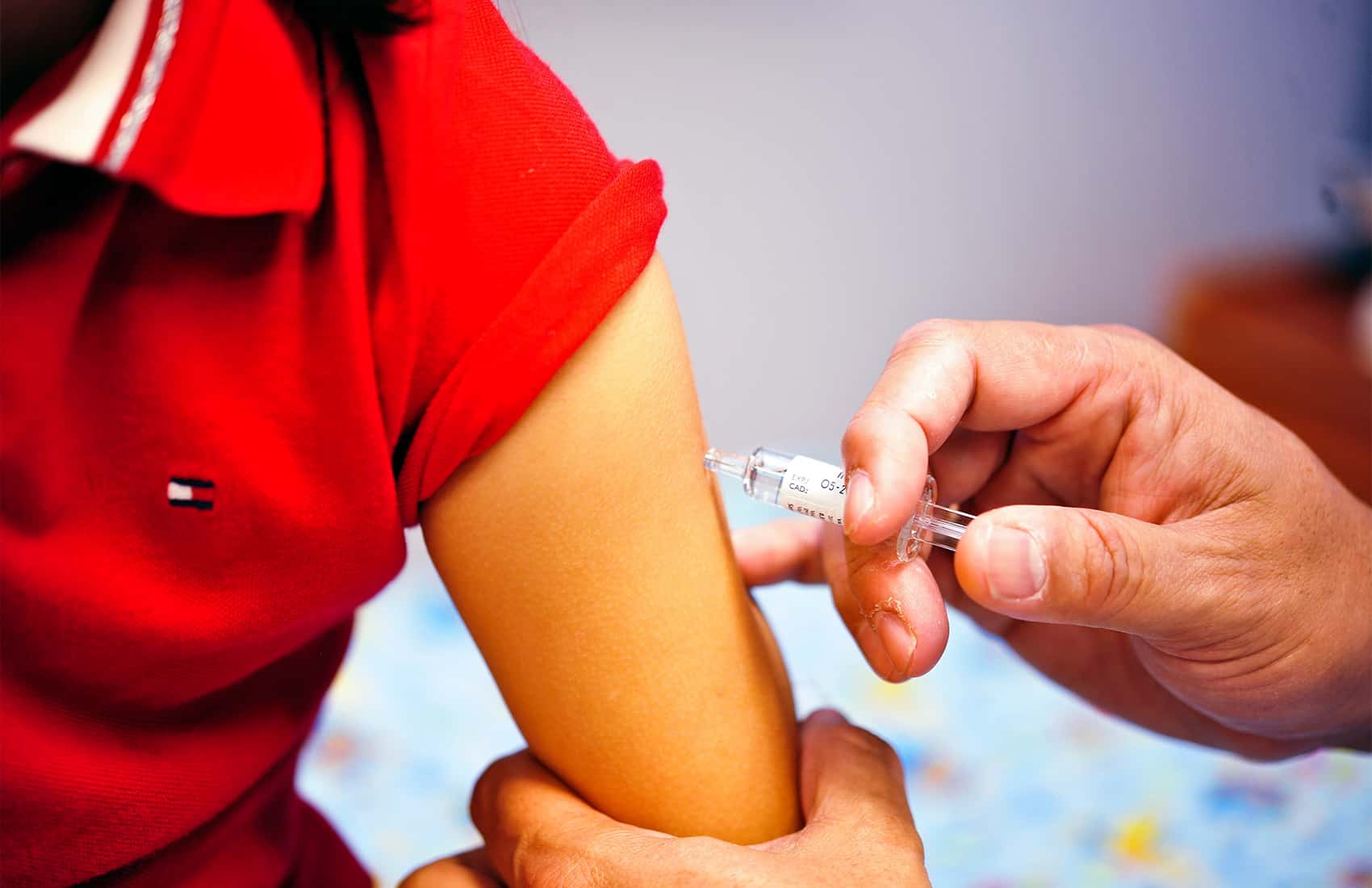Childhood immunization rates in Latin America and the Caribbean have fallen dramatically to levels seen 30 years ago, largely due to the COVID-19 pandemic, and now 25% of children lack “critical” immunizations, according to UNICEF’s warning on Wednesday.
“This is one of the most serious child immunization crises the region has seen in nearly 30 years,” said UNICEF’s director for Latin America and the Caribbean, Garry Conille.
Latin America once had one of the highest child vaccination rates globally, but it now has one of the lowest rates, Conille added in a statement.
The UNICEF report, entitled “The State of the World’s Children 2023: For Every Child, Immunization,” highlights the situation in Latin America. The UN agency notes that the coverage of the third dose of diphtheria, tetanus, and pertussis vaccine among children under one fell by 18 percentage points, from 93% in 2012 to 75% in 2021.
This is the lowest routine immunization rate in the region in almost 30 years, placing Latin America and the Caribbean below the global average (81 percent) and just ahead of Eastern and Southern Africa (74 percent), UNICEF said.
Failure to prioritize vaccination
According to the United Nations Children’s Fund, in Latin America, 2.4 million children under one year of age (one in four) are unprotected against preventable diseases due to a lack of full vaccination. Additionally, 1.7 million children have never been vaccinated. Venezuela (27%), Brazil (26%), Haiti (25%), and Bolivia (25%) have the highest percentages of children under one year of age without any vaccination, while Costa Rica, the Dominican Republic, Cuba, Chile, and St. Vincent and the Grenadines have only 1% without immunization.
Haiti (24%), Panama (19%), and Venezuela (17%) have the highest percentage of children under 12 months with incomplete vaccination, while Belize, Cuba, and Costa Rica have no such cases.
“We are talking about almost all the vaccines in the immunization program; however, we are most concerned about diphtheria, tetanus, and pertussis,” said Ralph Midy, UNICEF’s Immunization advisor for Latin America and the Caribbean.
“Both governments and international organizations have stopped prioritizing the issue of immunization in the region,” he added.
Pandemic triggered deficiencies
The situation has caused diseases such as diphtheria, measles, and polio, which were thought to have been eradicated in many countries, to reappear.
One of the primary causes of the decline in immunization levels in Latin America and the Caribbean is the COVID-19 pandemic, according to UNICEF. However, the decline was already occurring due to structural problems, lack of investment in primary care, shortage of qualified professionals, vaccines, and resources.
“Prolonged political and social instability has worsened over the past 10 years, creating difficulties in different countries,” Midy said.
“The pandemic exacerbated the challenges the region was already facing, disrupting childhood vaccination due to intense demands on health systems and containment measures,” he added.
Additionally, anti-vaccine movements “have undoubtedly generated an impact, although it is difficult to measure precisely,” Midy concluded.






